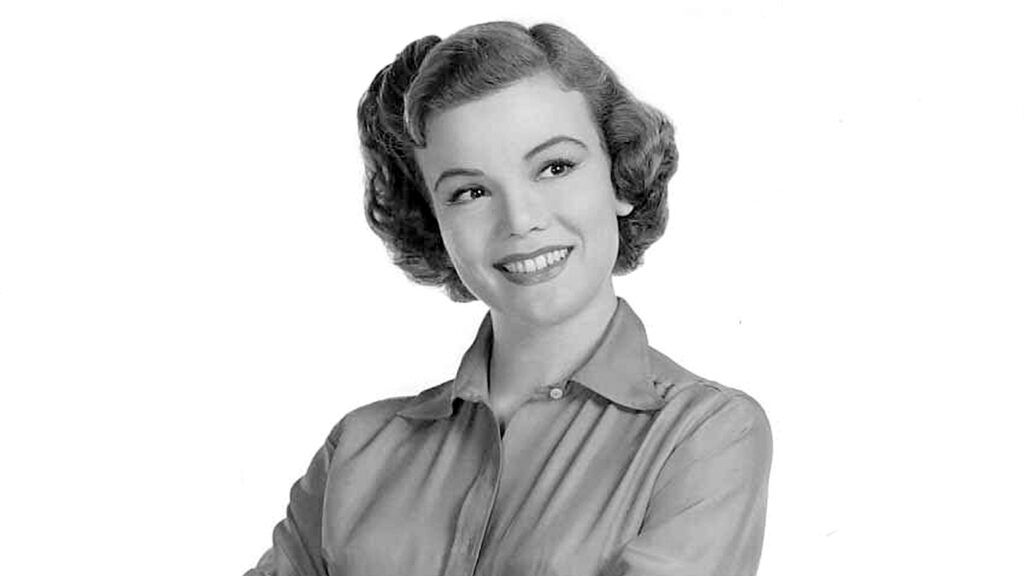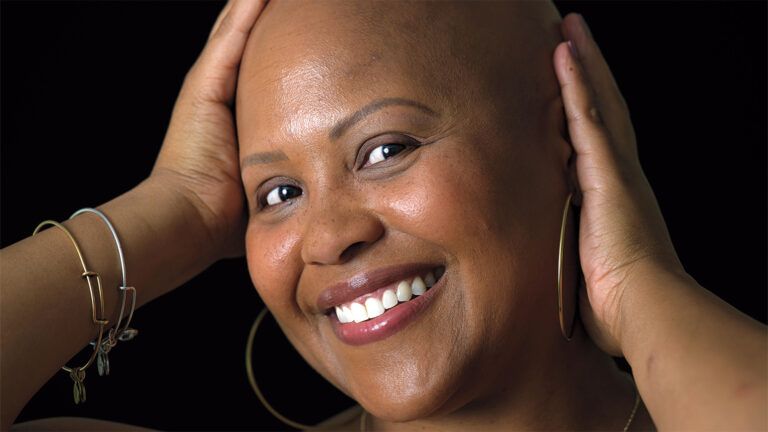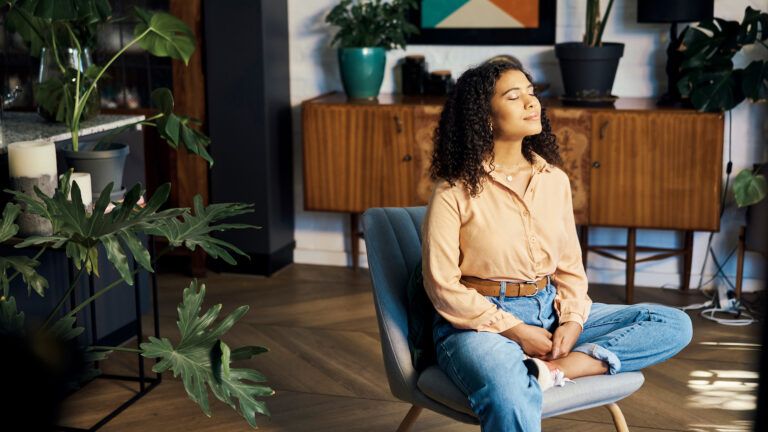Not too long ago I made the most astonishing discovery of my life–that God created us as incomplete persons in an imperfect world, and He had good reasons for doing just that. When I had my first real look at this Master Design recently, many things that have happened in my past became clear to me.
When other little girls were playing with mudpies and dolls I was in vaudeville. This was at age four. I was a movie actress at five and at eight a veteran singer, dancer and actress.
I did not understand much of what was going on around me, except that I had to be on time for activities I didn’t particularly enjoy. I was being asked to compete in an adult world, and all I wanted was simply to be a child.
READ MORE: MAUREEN O’SULLIVAN ON LONELINESS
Almost from the start, my life was haunted by incompleteness. My parents were divorced before I was ten years old, and so our family was incomplete. My mother loved the entertainment world and was determined that I should become a part of it. And so my childhood also was incomplete.
Did my mother mean harm? Certainly not. Her love for me was expressed in trying to make me a star. She was thoroughly convinced I deserved it. And eager to win her love and to please her, I did anything she wanted.
One result was that I lived mostly in a make-believe world. Now it’s a strange thing, but the world of make-believe does have a kind of artificial completeness. All the loose ends are neatly tied together. All the problems are solved.
I clung to this unreal world because in it I was complete too. But the more you live in the perfect world of make-believe, the harder it is to face the imperfect world of reality.
The sense of incompleteness that haunted me was heightened by a physical handicap. For a long time, nobody knew that I was partially deaf. I didn’t realize it myself. I thought everybody heard just the way I did. When I discovered they didn’t, it made me feel even more incomplete, even more apart.
As I grew up, this sense of not being a whole person filled me with fears that resulted in a paralyzing form of indecision. It reached the point where I just couldn’t make up my mind about anything.
If I was asked to approve a few scripts I’d say they were all fine. I developed the feeling that I had no mind of my own. The thought came to me that perhaps I was too dependent on my mother. And so, when I was 20, I decided to go to New York where it is so easy to be alone.
READ MORE: JANE WYMAN ON LOOKING OUTWARD
And I was alone, terribly alone. Oh, there was success. I had star roles in hit shows like Bloomer Girl and High Button Shoes, and the critics were kind. But when we went on tour with Bloomer Girl we played in a theater in one city where the orchestra was under a sort of shell and I could only see the conductor.
He gave me a nod to start, and I began singing but heard no music at all. Between acts I asked him,“Where’s the music? Why isn’t the orchestra playing?” He looked at me strangely and said,“They are playing.”
An ear doctor told me that in five years I would be totally deaf. It was like a sentence of death. Every night from then on I went to bed tormented by the thought that this physical incompleteness was going to destroy my career.
I was terrified about going into a new show, Arms and the Girl, but I went ahead and somehow survived the run. Then the excitement of making a movie, The Band Wagon, kept me going for a while.
But after that the simplest task just overwhelmed me. I couldn’t order dinner or make up a laundry list. I began to develop stomach pains and muscle aches. Finally I couldn’t even memorize lines.
When I spent four weeks trying to learn a lyric that ordinarily should have taken me four minutes, I folded up. I decided to quit work, go to the country for a rest and stay under the care of a doctor.
That wasn’t easy to do. There was fear and shame, and I was forced to look at myself hard and ask,“Who am I? Where are my roots? Why am I such an incomplete person?”
Basically, I am a happy individual, always have been. Yet these problems laid me low for a time. I knew all along that what I lacked was any kind of faith in myself.
What I didn’t know, and had to discover the hard way, was that if you don’t have faith in yourself, you hardly can have faith in people, in the world, in God. I had to see that since God created us in His image, then we must have faith in the image: ourselves.
READ MORE: SHIRLEY JONES ON FATHERLY LOVE
If we achieve that, then we have His spirit within us, and we can accomplish anything, even ridding oneself of fear.
In cases like mine, I’ve since learned, there comes a point of crisis when you are painfully aware that you simply cannot go on alone. If you accept this and ask for help, this is the turning point. It can come as a sudden inner light or a slow dawning. For me it was slow, very slow.
After staying under the doctor’s care in the country for seven months, I returned to New York in 1954, and Sid Caesar asked me to be on his TV show. I didn’t know whether I wanted to go back to work or to face an audience at all.
Sid persisted. I explained that he was taking an awful chance on me. He said he would take it. (Editor’s note: Miss Fabray won three Emmy Awards for her performances.)
My torment over my hearing also ended when I returned to work. I finally located the right doctor for me, a man as amazing for his ability to reassure as he is for his skill. He explained that the stapes, a bone in my inner ear, the smallest bone in the body, was being calcified and so made rigid.
We hear when the stapes vibrates. The more rigid mine got the less I heard. But the doctor said that maybe it wouldn’t get any worse and even if it did it wasn’t the end of the world. I still could live a normal and happy life as so many others did with the same affliction.
READ MORE: ETHEL WATERS ON SHARING GOD’S LOVE
Seven years ago the doctor performed the first operation on my right ear. He wasn’t entirely satisfied with the results, and performed another operation two years later. The second was a success: I have about a 30 percent hearing loss in my right ear.
My left one has been going downhill a bit, and there is now about the same hearing loss as in my right ear.
I’m not self-conscious about my hearing loss or my hearing aid. It’s part of my life, a small part of it. My hearing aid is no more important now to me than my husband’s eye glasses are to him.
Before my first operation I met screenwriter Ranald MacDougall and was immediately impressed with his knowledge, though he never flaunts it. His compassion and understanding, among other things, make him one of the kindest men I ever have met. We were married in 1957.
Earlier in my life when I was offered love I didn’t know how to accept it. This time I knew how. Love is a growing thing. The more I love, the more I am able to grow toward completeness.
READ MORE: AGNES MOOREHEAD ON THE BIBLE
I know now that I never will be totally complete, but I also know that this is good. God created the drama of the universe and made the working cast when He took a lump of clay and said,“Let there be man” (Genesis 1:26). But I think that He left man incomplete on purpose.
This divine incompleteness runs through all of life. We ask God for our daily bread and He gives us the field to plow and to seed and to harvest. We ask Him to forgive us our trespasses and He asks us first to forgive those who trespass against us.
We ask Him to let us perpetuate ourselves. And He does not give us grown men and women; He gives us babies. If we are incomplete, I know that it is because God still is making us. Once I feared to do anything, anything at all. Now the wonderful thing about life is that so much remains to be done.
For more inspiring stories, subscribe to Guideposts magazine.






